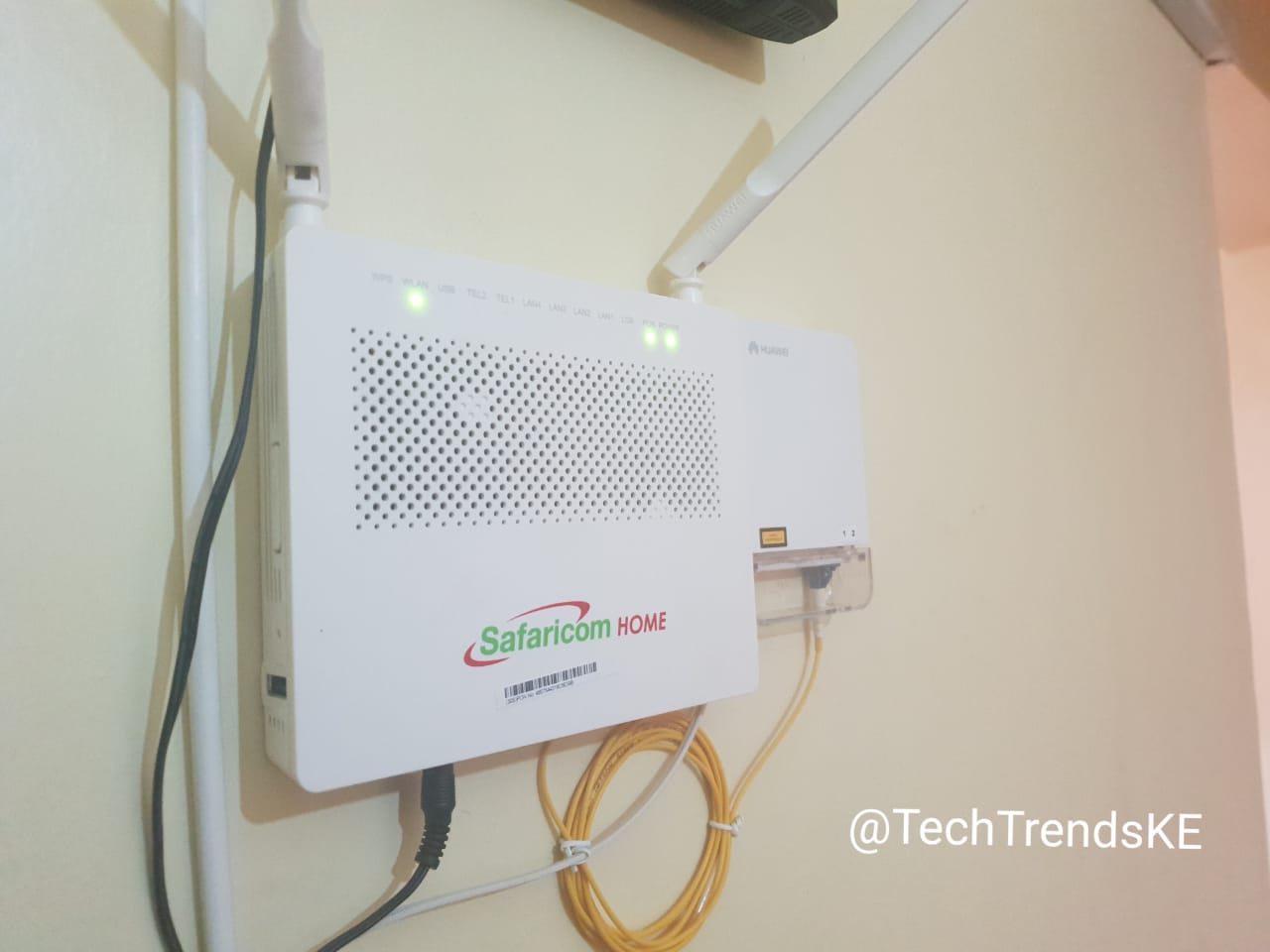Safaricom Home Fibre now available in more parts of the country

When the pandemic started, the demand for home internet and wireless connectivity in Kenya went high as more Kenyans started working and learning remotely.
The disrupted business environment made it essential to provide for everyone with any time, anywhere internet access. People started using video conferencing applications and creators started making more content for online consumption.
Usage of e-learning and messaging tools also started growing rapidly, placing additional load on these Internet-based applications and platforms, generating additional traffic.
Due to this, some regulators and ISPs had to take drastic measures to reduce the load on internet infrastructure during peak hours to prevent a stalemate. Locally, for example, Safaricom doubled its internet speeds for its home fibre packages. Safaricom Home fibre customers got these double speeds at no extra charges, meaning they continued paying their normal fees but for a much faster connection. If you pay for 5Mbps, you will now have 10Mbps and if you pay for 10Mbps you will now have 20Mbps and so on.
Publishing
For my case as publisher and a digital content creator, this meant I could create more content on my blog without being worried about my bandwidth being strained. I use the 10Mbs package and for that entire working from home duration I have been able to publish close to 900 articles.
This is the highest I have done in a very short period.
Virtual Podcast Recordings
I also run a podcast with two other tech bloggers (Dickson Otieno, and Emmanuel Chenze). The name of the podcast is 24Bit available on all podcast platforms, and we gather around every week to have conversations on tech.
When the pandemic hit and movement was restricted we had to rethink our strategy and started doing our recordings virtually using some of these video conferencing platforms. Of course, connection problems are bound to interfere when doing this type of recordings and this is where I really appreciated having a home internet connection. Our recordings were smooth with less distractions. We really never had to worry about the quality of our video experience. I even think some of the best recordings we did through the entire period we have run the podcast are the ones we did virtually, at least based on the feedback we got from our audiences.
We have some of the episodes up on YouTube, and again uploading them required a good connection considering how big the videos were, and again, Safaricom Home Fibre came in handy.
In one of the podcast episodes where we discussed smartphone cameras, we even did a livestream with two extra guests. In another recording we also discussed our experience working from home and how things like having a good home connection is helping work together from different locations.
Online media consumption set to increase
With more people staying at home, the online media consumption is poised to increase as well reported by Internet Society. The report notes that ‘’Core Internet infrastructure providers should be able to easily absorb the increase in traffic and demand, especially if the growth is gradual over a period of days, weeks, or months.’’
The latest Sector Statistics report from the Communication Authority of Kenya released in July this year also noted that more Kenyans are taking up fixed broadband services.
A total of 674,191 Kenyans were connected to Fixed data at the end of 2020. This represented a 4.6 increase in the number of subscriptions from the third quarter of the year. Total subscriptions stood at 644,816 in Q3, according to the September statistics report released January 2020.
From the previous report, Safaricom increased its market share by adding 22,000 net subscribers. Safaricom has also been rapidly expanding its Home Fibre services to more parts of the country. Customers can now sign up for the service across parts of Nairobi, Mombasa, Western, Nyanza, Eastern, Central and the Rift Valley.
Safaricom says Home Fibre is now available in more than 12,000 Estates in Kenya with over 350,000 homes passed.
Follow us on Telegram, Twitter, Facebook, or subscribe to our weekly newsletter to ensure you don’t miss out on any future updates. Send tips to info@techtrendske.co.ke



